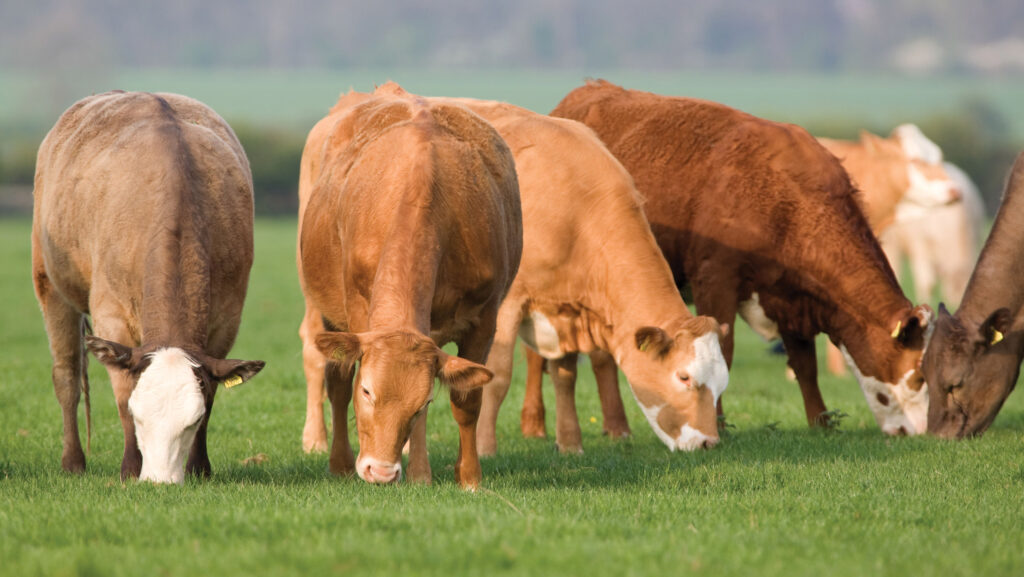Beef producers benefit as tight supplies push prices higher
 © Tim Scrivener
© Tim Scrivener Farmgate beef prices have continued to strengthen, supported by a reduced supply of cattle across the UK.
As seasonal demand builds ahead of Christmas, abattoirs appear increasingly eager to secure supplies, suggesting potential further upward pressure on prices in the coming weeks.
GB deadweight steers averaged 647.7p/kg for the week ending 18 October, up 7p/kg on month-earlier levels and 134p/kg above the same week last year.
See also: Dawn Meats confirms partnership with NZ co-op Alliance
Defra latest figures show UK prime cattle down 3% year on year in September, and more recent slaughter figures indicate cattle throughputs have remained low in October.
Beef and veal production totalled 659,000 tonnes for the first nine months of 2025, down 4.3% on the year.
Scottish livestock marketing co-operative Farmstock has suggested that the trade for prime cattle may still rise further, with numbers tightening and outlets planning their Christmas kill schedules.
The numbers
- 647.7p/kg Average deadweight steer price for week ending 18 October
- 372.4p/kg Average liveweight steer price for week ending 18 October
- 4.3% Fall in beef and veal production during first nine months of 2025
Stuart Vile, ruminant manager at Meadow Quality, also indicated that UK beef prices could firm, with cattle supplies lower in Ireland as well.
However, he warned that demand from consumers could be limited due to the high price point.
At livestock markets in England and Wales, steers were averaging 372.4p/kg liveweight and heifers 393.6p/kg in mid-October, with auctioneers calling for more cattle to fill demand from buyers.
US beef market
A shortage of cattle across the US has led to record beef prices in the past month at both farmgate and retail.
In a bid to bring down domestic beef prices, US president Donald Trump has indicated a potential deal to buy Argentinian beef.
This has been met with anger by US beef farmers who have warned this could undercut domestic producers and increase the risk of importing diseases such as foot-and-mouth.
Rob Larew, president of the US National Farmers Union, said:
“Lowering beef prices for consumers starts with restoring fairness in the marketplace, not by importing beef from Argentina and undercutting American ranchers.
“Years of drought, depressed cattle prices, and unchecked corporate consolidation have already pushed many family farmers and ranchers to the brink, all while consumers pay more at the grocery store.”
Colin Woodall, chief executive of the National Cattlemen’s Beef Association, also criticised the proposal and suggested that the plan would only create chaos at a critical time of the year for producers, while doing nothing to lower retail prices.
He added: “Argentina also has a history of foot-and-mouth disease which, if brought to the US, could decimate our domestic livestock production.”
Tight supplies of beef in the US, coupled with shifting global trade flows, could further support UK beef prices.
Tom Spencer, an analyst at the AHDB, said:
“The continued contraction in US cattle supplies, alongside firm domestic demand, is helping to support underlying strength in global beef prices, a key factor for UK competitiveness in export markets.”
He added that the sharp rise in US beef imports could also tighten global supply availability, which may support pricing for frozen products in other markets, including the UK.
